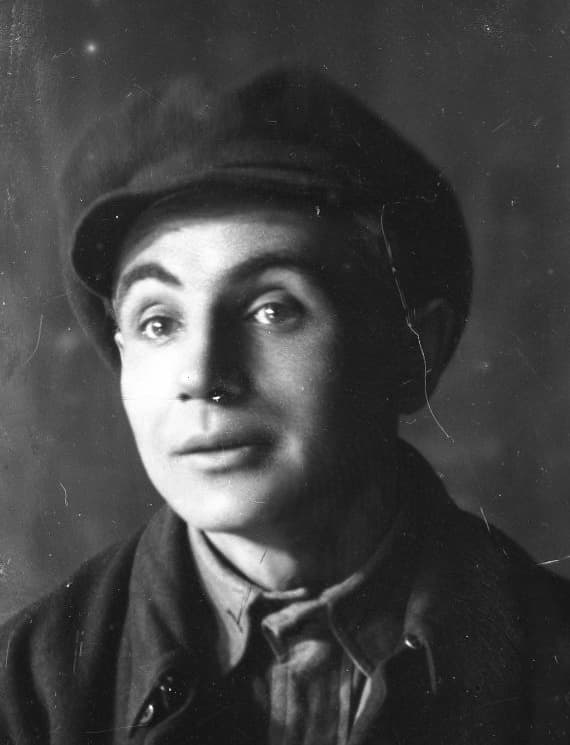September 16, 1904 – July 28, 1991
Petro Masokha was a Ukrainian theater and film actor, member of the Berezil Artistic Association, and student of Les Kurbas. He was born in Pliuvaky village (today Cherkasy oblast). He graduated from the Lysenko Music and Drama Institute (1923) in the studio of Les Kurbas.
Masokha was an actor at the Berezil Theater in 1923-1928 and played small roles in Gaz, Jimmie Higgins, La Jacquerie, Riff-Raff, Trade Union Secretary, Chasing Two Hares. He was involved with the Berezil Theatrical Association theater museum. Until 1943 he performed with various theaters, including the Kharkiv Theater of Working Youth, Kyiv Young Spectator’s Theater, Shevchenko Kharkiv Ukrainian Drama Theater, Drohobych Ukrainian Music and Drama Theater.
He begins acting in films in 1927. From the 1920s to early 1930s he plays a variety of roles, from good characters – communists (the engineer’s assistant in Heorhii Stabovyi’s Man from the Forest (1927) and the French sailor in Arnold Kordium’s Mirabeau), to bad ones – kurkuls (Leonid Lukov’s Italian Woman (1931)), members of Soviet society who stray off course (Don Juan pilot Luhovyi in Oleksandr Perehuda’s Dead Loop (1929), Lopukhov in Leonid Frenkel’s Your Guy (1930)). During this period he collaborates with Oleksandr Dovzhenko: he plays a worker in Arsenal (1929), kurkul Khoma Bilokon, the killer of village activist Vasyl in Earth (1930). In Ivan (1932) he plays a variation on the theme of the “New Soviet man” – village boy Ivan, who goes to work on the construction of a hydroelectric power plant and becomes a shock worker. In the 1930s he played a number of bad characters (the Baltic Fleet envoy in Arnold Kordium’s Final Port (1934), Red Army soldier Svyrydenko in Mykhailo Romm’s The Thirteen (1936)). His biggest role of this period is revolutionary soldier Ivan Polovets in Ihor Savchenko’s Guerrilla Brigade, inspired by Yurii Yanovskyi’s story (1939). That year he also plays a Red Army soldier in Oleksandr Dovzhenko’s Shchors.
Unlike many of his colleagues, he was not repressed in the 1930s. However, during WWII he ended up in occupied territory and later in Germany, which led to a number of career limitations in the postwar period. In 1946-1953 he worked as an actor at the Dnipropetrovsk Music and Drama Theater, and in 1954-1964 was a reciter at the Kyiv Philharmonic. From time to time he plays supporting roles in films: Halibei in Hryhorii Krykun’s Along the Cheremosh (1954), Kostromin in Viktor Ivchenko’s There’s a Guy (1956), a peasant in Oleksii Shvachko’s Bloody Dawn (1956), among others.


